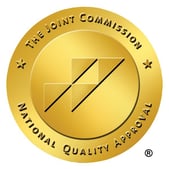When you are discharged after your Total Joint Replacement Surgery, specialists from the VNA of Care New England will visit you at home. These specialists will continue working on exercises to restore your strength and get you back to your normal level of activity.
Once cleared by your surgeon, you will transition to one of our preferred outpatient clinics, such as Spaulding Outpatient Rehabilitation of Kent Hospital’s Joint Health program, to continue physical therapy. Physical therapy will help you increase the range of motion and strength in your new joint, lower your pain, and will make sure you get back your independence.




